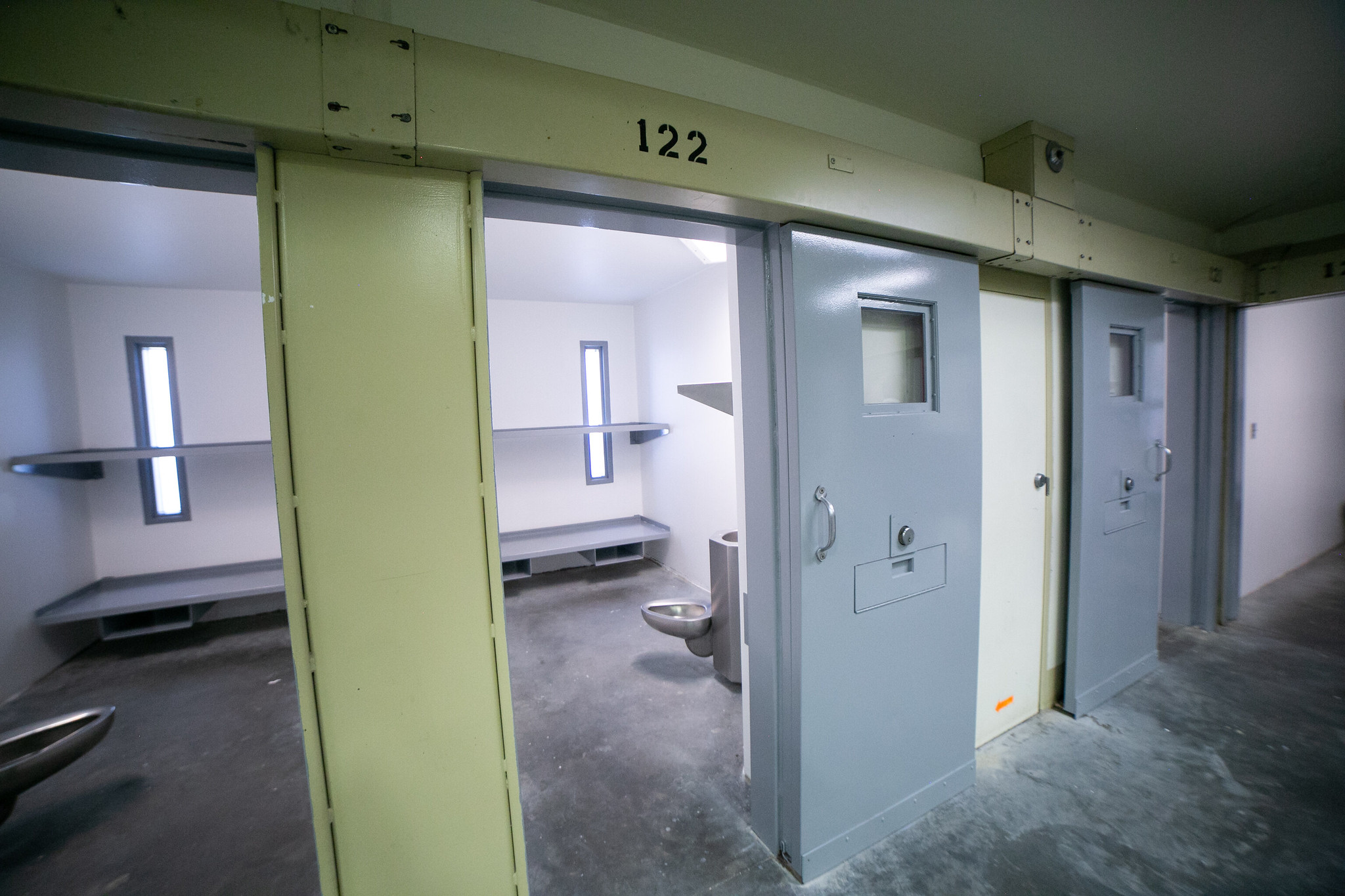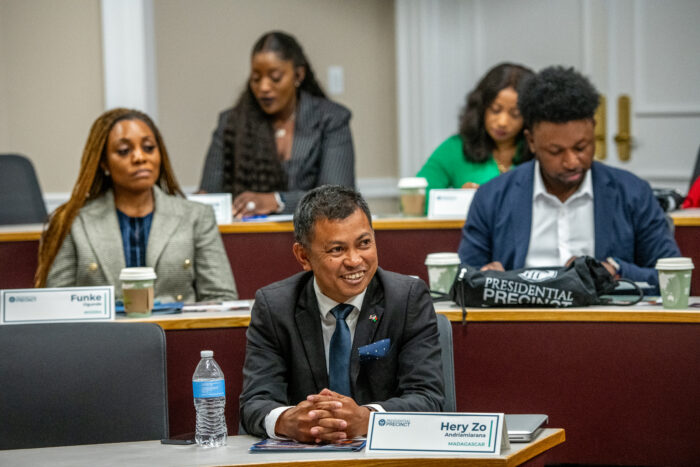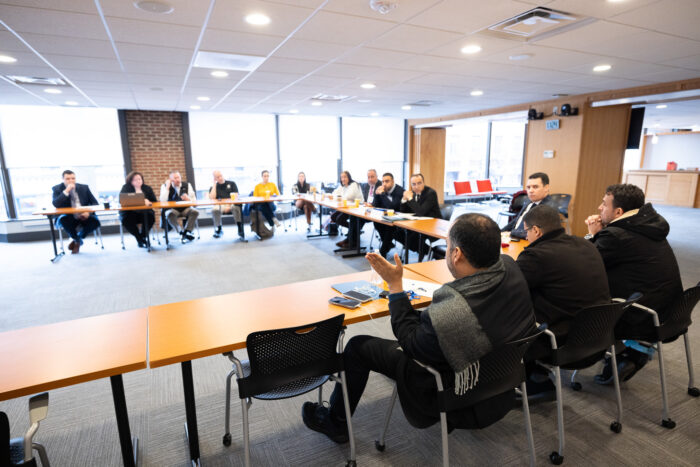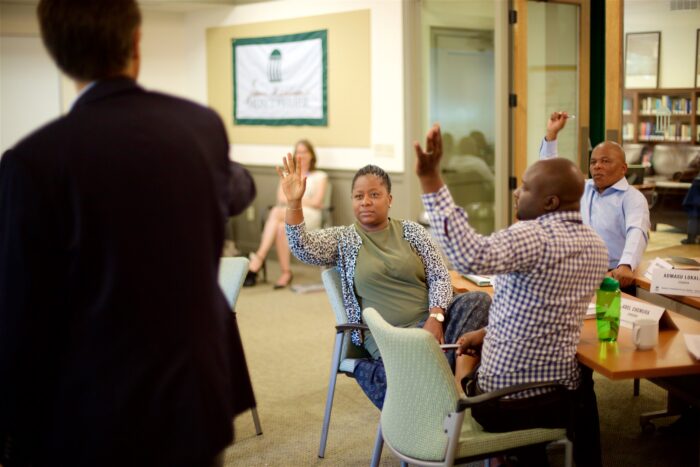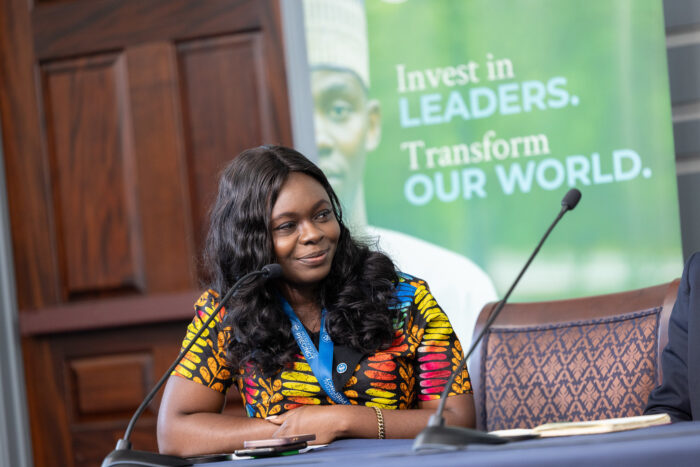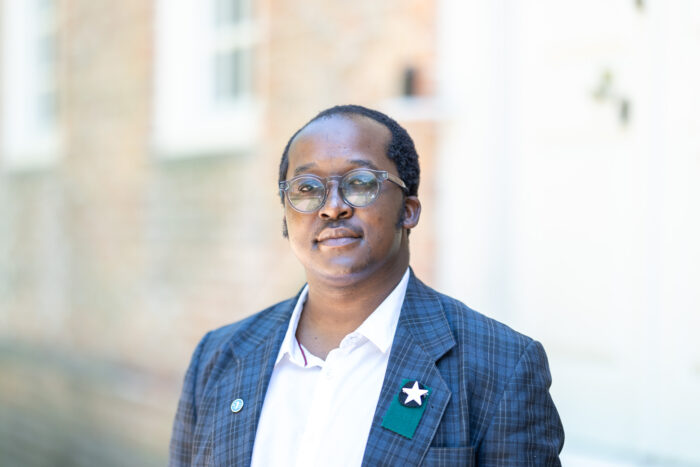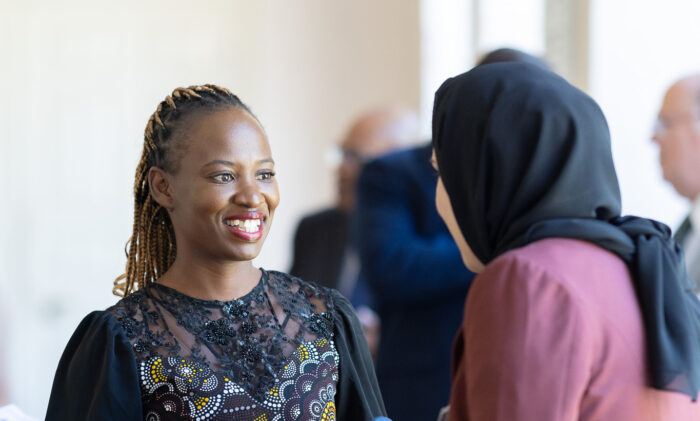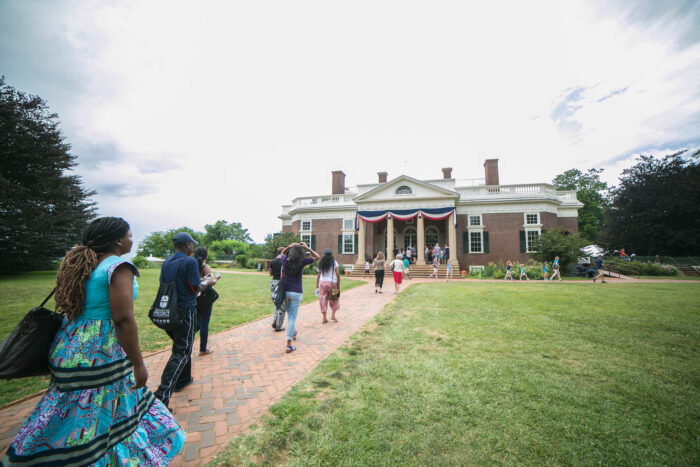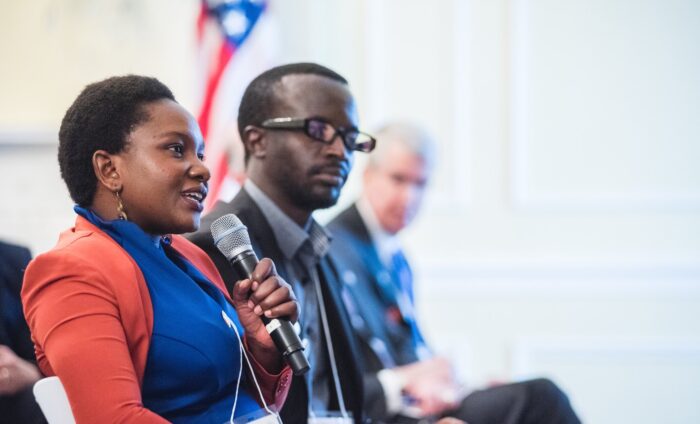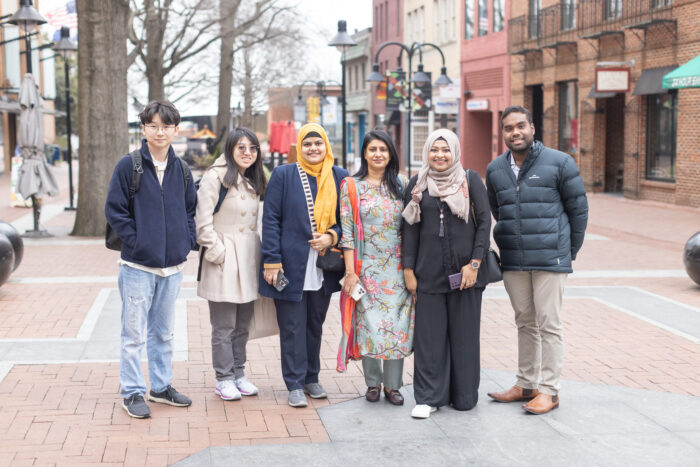THEIN: "I have learned to trust the people to govern."
EDITOR’S NOTE: The Presidential Precinct is currently developing a Global Democracy Fellowship that responds to the worrisome trend of democratic backsliding. The Fellowship will convene young democracy champions from every region of the world—including the United States—for immersive learning and dialogue on the most pressing contemporary threats to democracy. A key outcome will be the generation of new knowledge and perspectives on the definition of democracy in a global context and how democratic processes, institutions, and leadership can be strengthened. Myo Yan’s story, we believe, speaks to the valuable insights that will mark the Presidential Precinct’s Global Democracy Fellowship.
—
When the military coup in Myanmar overthrew the democratically elected government in February, Myo Yan Naung Thein found himself the target of possible arrest. Over the past twenty years, Myo Yan had been a nationally recognized advocate for democracy, first as a student activist, then as a key member in the National League for Democracy. He was forced to flee his country, ultimately finding refuge at the University of Virginia. Now a member of the Democratic Futures Working Group (DFWG), Myo Yan is sharing his insights on the global state of democracy with advocates, academics, and students. Working with me as the Chair of the DFWG, Myo Yan is also producing a memoir of his development as a democratic advocate.
His story, we believe, speaks to the valuable insights that will mark the Presidential Precinct’s Global Fellows Program. The following is an excerpt from that emerging manuscript. – SP
—
When I was 16 and 17-years old, I went to the American Center and read books. I was impressed by the American Constitution, American values. Thomas Jefferson and Abraham Lincoln became my heroes. I wanted to transform my country into a country like the United States. I soon became involved in politics. I knew the system in Myanmar was wrong. When independence came to my country from Great Britain in the 1940’s, we were on the right track. Then the military took power in a coup. We moved to a socialist track. It was wrong. I was always thinking, what if our country became a country like the United States?
Then in 1994, I became a student at the Institute of Technology, one of two most prestigious universities in Myanmar. I met people who had the same interests and values as me. We started to study the Constitution of the United States, to study democracy and human rights. We always thought about what Thomas Jefferson said, “Democracy is not tyranny of majority. It protects the rights of minority. It ensures the rights of minorities.” We began to advocate for equality, justice, and freedom. These were our three foundational values.
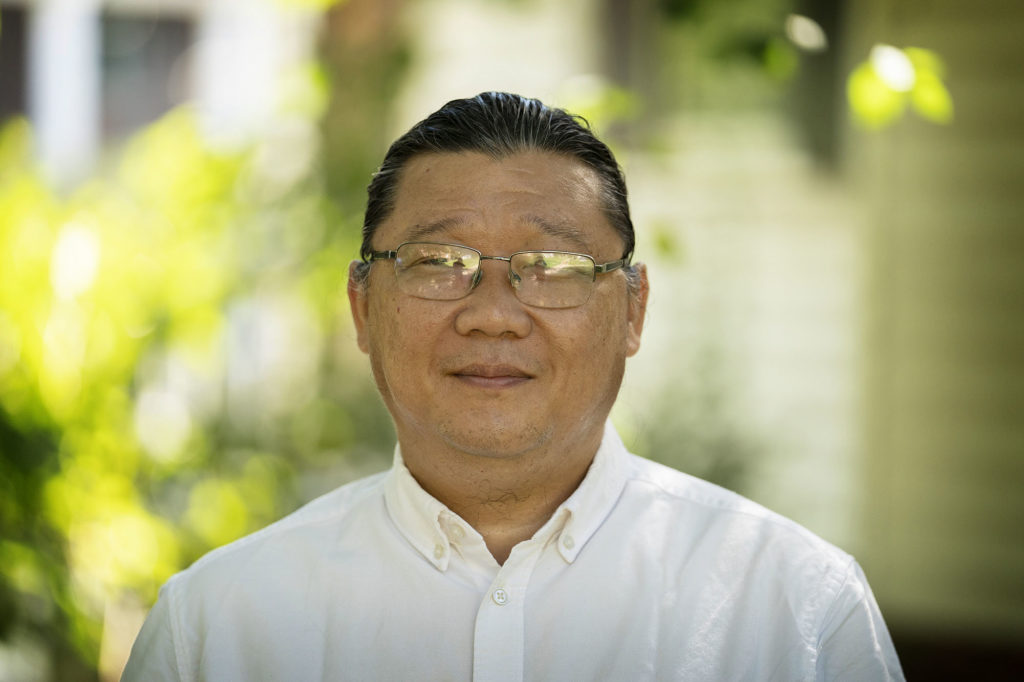
Our first act was a demonstration against the police beating of college students, but it was really about human rights and democracy. We were really arguing the 1990 election results, which the military refused to accept, needed to be realized. Our protests occurred on and off campus for about seven days. As a result of those protests, the military government arrested and imprisoned me for seven years, mostly in solitary confinement. After my release, I was again arrested and imprisoned for my advocacy of democracy. Now, even after we successful created a democratic government for over five years in Burma/Myanmar, the military has taken power again. Threatening me again with imprisonment, threatening my family.
Of course, given this history, at times, I have had doubts.
When I started, I was working for democracy, by which I meant equality, justice, and freedom. These were my trinity of my politics. As I have done this work, I have learned the question becomes what should come first. Some advocates argue economic development should come before democracy. People should be well educated, be well off, be economically equal before democracy can work. I think this idea is wrong. This argument justifies authoritarian governments, who feel justified in not expanding political rights until the “right moment is reached,” until there is economic equality and so on. Yes, education is important. Economic quality is important. But they do not ensure good government.
I have learned to trust the people to govern using their common sense and goodness. Everybody has common sense. Ever since you were a child, you have common sense. Common sense is wisdom. Common sense is love. Common sense is peace. Through my struggles, I have learned that everybody wants peace. Everybody wants love. It’s common sense. And I have learned that people are good. When I spent my first night in prison, I was afraid, desperate, alone in my cell. That night, a fellow prisoner must have known I would be scared. So, when night came, he sang to me from across the cells. He sang songs about justice, about democracy. He sang knowing he would be harshly punished by guards. He sang because he was kind, because people are kind.
When I have doubts, I put my faith in the common sense and kindness of people.
Today, I find myself working for justice. I know there will always be economic inequality. That freedom will always be limited. But I believe there is no limit for justice. Everyone can be treated justly. It provides safety to the minority. It is a basis from which to build democracy. So, if I describe myself today, I say I am working for justice. I work in all these things for justice. And I do so because I remain dedicated to the belief, adopted over twenty-five years ago, that democracy should exist everywhere.
Today, I would tell young advocates who are just beginning fight for democracy the following: Authoritarian regimes count on you being afraid. They count on the threat of punishment to stop you from advocating for reform. When I was sentenced to seven years in jail, I believe they thought I would never test them again. Perhaps if they had put me in jail for two weeks, I might have been scared off. But in prison, I learned I had the strength to overcome their oppressive tactics. Again – authoritarian regimes count on you being afraid.
In prison, I learned I was stronger than the fear dominating our society.You are braver and stronger than you realize. You can do more than you think is possible. Trust yourself and those around and, I believe, you can begin to change the world.
—
Myo Yan Naung Thein is a Visiting Research and member of the Democratic Futures Working Group at the University of Virginia. For the past twenty-five years, he has been a leading advocate for democracy in Myanmar/Burma, for which he was imprisoned for ten years by the military government. Despite this persecution, he has been a leader in the National League of Democracy, serving as chief research officer for the Central Committee for Research and Strategy Studies. He is also the founder and director of the Bayda Institute, which provided training in good governance for newly elected Burmese legislators.
Steve Parks is the Presidential Precinct Global Democracy Scholar in Residence. He is an Associate Professor of English at UVA and the Chair of the Democratic Futures Working Group. He has spent the past thirty years researching and developing campaigns for social justice and democracy, efforts which have resulted in the creation of organizations, such as New City Community Press and Syrians for Truth and Justice.

